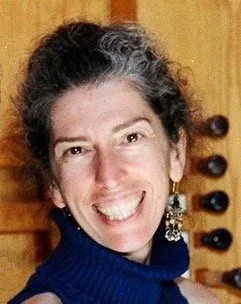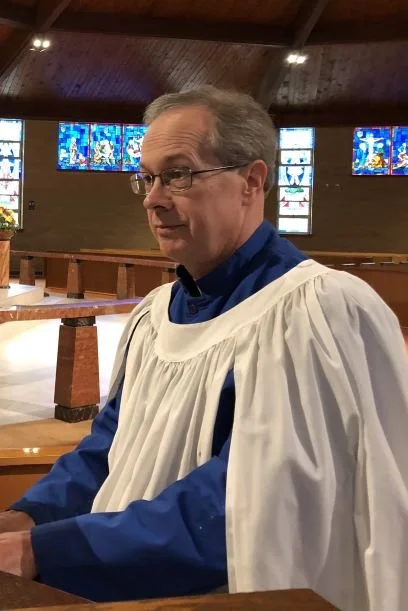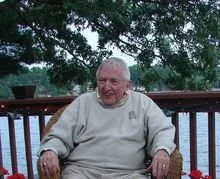
Past Deans

First Lutheran Church of Boston
Richards, Fowkes & Co., Opus 10, 2000
”Boston’s Bach Organ”
Deans of chapters of the American Guild of Organists preside at meetings of their chapter and its executive committee. They ensure that the chapter’s activities promote the mission of the Guild, and adhere to AGO bylaws and operating procedures. Deans provide oversight of chapter programs and finances. They build community and engage members to participate.
The Boston Chapter of the Guild has been blessed with deans who were skilled facilitators, communicators, and managers. Beyond that, many imparted impressive visions for the future and exhibited the ability to inspire their colleagues.
This section of the website is dedicated to the musicians who have served as dean since the inception of the chapter in 1905.
PAST DEANS, LISTED BY TERM YEARS
George A. Burdett
1905-1908
Hamilton C. MacDougall
1908-1909
Walter J. Clemson
1909-1918
Everett E. Truette
1918-1920
George A. Burdett
1920-1922
John H. Loud
1922-1926
John P. Marshall
1926-1930
Raymond C. Robinson
1930-1933
Frederick H. Johnson
1933-1936
William E. Zeuch
1936-1937
Homer P. Whitford
1937-1939
Homer C. Humphrey
1939-1942
William B. Burbank
1942-1944
Harris S. Shaw
1944-1947
Gerald Foster Frazee
1947-1949
Ruth Barrett Phelps
1949-1951
Theodore N. Marier
1951-1952
Grover J. Oberle
1952-1954
George H. Faxon
1954-1955
Eleanor P. Jackson
1955-1956
Herbert Irvine
1956-1958
Mary Crowley Vivian
1958-1960
Max B. Miller
1960-1961
John R. Ferris
1961-1963
Marion Boron
1963-1964
Daniel Pinkham
1964-1965
Jack B. Fisher
1965-1967
Rosamond D. Brenner
1967-1969
Richard J. Griffin
1969-1971
C. Martin Steinmetz
1971-1973
Barbara J. Owen
1973-1975
Marshall S. Wilkins
1975-1977
Beverly Jerold Scheibert
1977-1979
Carl S. Fudge
1979-1981
Margaret C. Krewson
1981-1983
Lois W. Regestein
1983-1985
James F. Hejduk
1985-1986
Victoria R. Sirota
1986-1988
Nancy B. Granert
1989-1990
John P. Whiteside
1990-1992
Victoria L. Wagner
1992-1994
Jennifer A. Lester
1994-1996
David Carrier
1996-1998
Mark T. Engelhardt
1998-2000
Glenn Goda
2000-2003
Laurence Carson
2002-2004
Margaret Angelini
2004-2006
Heinrich Christensen
2006-2008
Lee Ridgway
2008-2010
Victoria L. Wagner
2010-2012
Dan McKinley
2012-2014
Peter Edwin Krasinsky
2014-2016
Robert Barney
2016-2018
Louise Mundinger
2018-2020
Jeremy S. Bruns
2020-2022
Mitchell Crawford
2022-2024
PAST DEAN BIOGRAPHIES AND PHOTOS, LISTED IN ALPHABETICAL ORDER
The short biographies and photos presented in this section were collected by Boston chapter member Claire DeCusati. She received research assistance from Leo Abbott, Carson Cooman, Carl Klein, Louise Mundinger, and Barbara Owen of the Boston chapter; Gail Dow from Methuen Memorial Music Hall; and Todd Sisley, editor of The American Organist magazine. The biographies were edited and updated by Daryl Bichel in June 2025.
-
![]()
Margaret Angelini
2004-2006
-
![]()
Robert Barney
2016-2018
-
![]()
Marion Boron
1963-1964
-
![]()
Rosamond D. Brenner
1967-1969
-
![]()
Jeremy S. Bruns
2020-2022
-
![]()
William B. Burbank
1942-1944
-
![]()
George A. Burdett
1905-1908 & 1920-1922
-
![]()
David Carrier
1996-1998
-
![]()
Laurence Carson
2002-2004
-
![]()
Heinrich Christensen
2006-2008
-
![]()
Walter J. Clemson
1909-1918
-
![]()
Mitchell Crawford
2022-2024
-
![]()
Mark T. Engelhardt
1998-2000
-
![]()
George H. Faxon
1954-1955
-
![]()
John R. Ferris
1961-1963
-
![]()
Jack B. Fisher
1965-1967
-
![]()
Gerald F. Frazee
1947-1949
-
![]()
Carl S. Fudge
1979-1981
-
![]()
Nancy B. Granert
1989-1990
-
![]()
Richard J. Griffin
1969-1971
-
![]()
Glenn Goda
2000-2003
-
![]()
James F. Hejdek
1985-1986
-
![]()
Homer C. Humphrey
1939-1942
-
![]()
Herbert Irvine
1956-1958
-
![]()
Eleanor P. Jackson
1955-1956
-
![]()
Frederick H. Johnson
1933-1936
-
![]()
Peter Edwin Krasinski
2014-2016
-
![]()
Margaret C. Krewson
1981-1983
-
![]()
Jennifer A. Lester
1994-1996
-
![]()
John H. Loud
1922-1926
-
![]()
Hamilton MacDougall
1908-1909
-
![]()
Theodore N. Marier
1951-1952
-
![]()
John P. Marshall
1926-1930
-
![]()
Dan McKinley
2012-2014
-
![]()
Max B. Miller
1960-1961
-
![]()
Louise Mundinger
2018-2020
-
![]()
Grover J. Oberle
1952-1954
-
![]()
Barbara J. Owen
1973-1975
-
![]()
Ruth Barrett Phelps
1949-1951
-
![]()
Daniel Pinkham
1964-1965
-
![]()
Lois W. Regestein
1983-1985
-
![]()
Lee Ridgway
2008-2010
-
![]()
Raymond C. Robinson
1930-1933
-
![]()
Beverly J. Scheibert
1977-1979
-
![]()
Harris S. Shaw
1944-1947
-
![]()
Victoria R. Sirota
1986-1988
-
![]()
C. Martin Steinmetz
1971-1973
-
![]()
Everette E. Truette
1918-1920
-
![]()
Victoria L. Wagner
1992-1994 & 2010-2012
-
![]()
John P. Whiteside
1990-1992
-
![]()
Homer P. Whitford
1937-1939
-
![]()
Marshall S. Wilkins
1975-1977
-
![]()
William E. Zeuch
1936-1937






















































